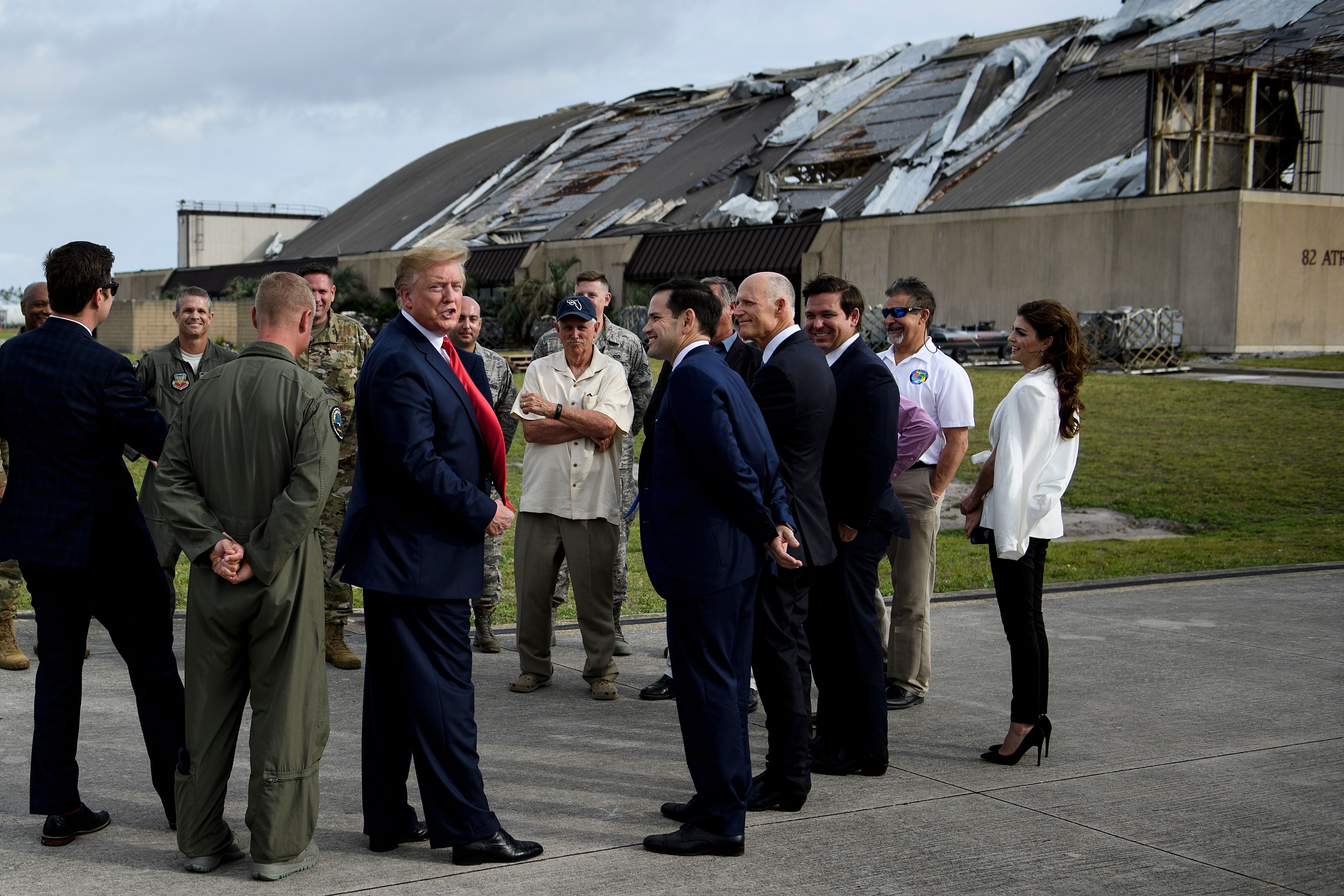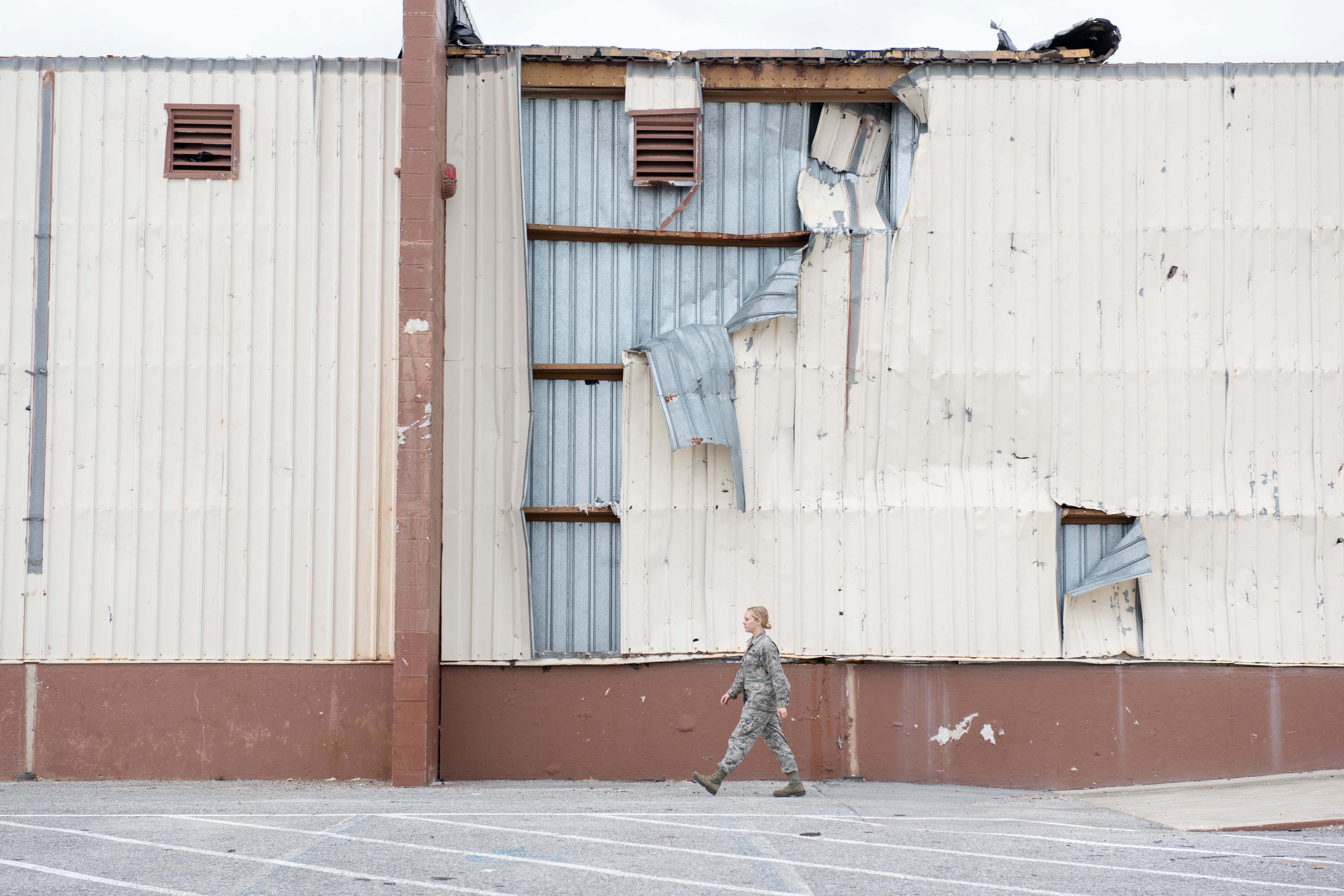WASHINGTON ― Congress has approved a $19.1 billion disaster aid deal that contains nearly $3 billion for storm-stricken military facilities around the country after the House passed it Monday, 354-58.
President Donald Trump is expected to sign the package, sending aid to victims of Western wildfires, Midwestern flooding and hurricanes that hit the South and Puerto Rico ― as well as Tyndall Air Force Base, Florida; Offutt Air Force Base, Nebraska; and Camp Lejeune and Marine Corps Air Station Cherry Point, both in North Carolina.
The bill allotted the Air Force a total of $1.67 billion, the Navy and Marine Corps $981 million, the Coast Guard $477 million, the Army National Guard $42 million, and the Department of Veterans Affairs $3 million. Appropriators offered a mix of military construction and operations and maintenance funding, some with the flexibility to be spent over several years.
The bipartisan House vote saw 132 Republicans vote with the Democratic majority. All 58 “no” votes were Republicans.
RELATED

Monday’s vote came after three Republican congressmen blocked passage of the bill during a pro forma session on Thursday. One of the objections came from Rep. Chip Roy, R-Texas, who cited its omission of $4.5 billion for urgent border needs and his concern over the national debt.
House Appropriations Committee Chairwoman Nita Lowey, D-N.Y., rebuked those lawmakers in a floor statement ahead of Monday’s vote, saying: “Today we are rejecting the political stunts and grandstanding that have made it difficult to deliver much-needed disaster relief to families and communities across America.”
The committee’s top Republican, Rep. Kay Granger, of Texas, said the bill’s critical funding for military installations severely damaged by hurricanes and floods “will return these facilities to a condition that can can support our men and women in uniform and help them get back to the job of protecting our nation.”
The delay had caused a domino effect for military construction projects outside the three devastated communities stateside. As funding ran out for recovery efforts in May, the Air Force halted and moved funding from 61 critical infrastructure projects across 18 states and five overseas locations, while the Marine Corps did likewise.
On May 23, the GOP-controlled Senate had passed the bill on a bipartisan basis, 85-8, hours after the White House backed off a rigid stance, insisting the bill include $4.5 billion for Department of Homeland Security operations at the border. The vote capped months of negotiations, in which the White House called out what it saw as excessive funding for Puerto Rico.
RELATED

Democratic leaders had faulted the president and Republicans overall for the delays on disaster aid, which is typically a bipartisan issue in Congress.
Republican Rep. Don Bacon, who represents a community near Offutt and once served in the Air Force as a wing commander, criticized the Republicans who blocked the bill, telling the Omaha World-Herald they were “giving our own party a bad name.”
“I thank my colleagues for voting to pass this legislation to help Nebraskans get back on their feet,” Bacon said in a statement after the vote. “When natural disasters strike, Americans pull together and lift each other up.”
Joe Gould was the senior Pentagon reporter for Defense News, covering the intersection of national security policy, politics and the defense industry. He had previously served as Congress reporter.








